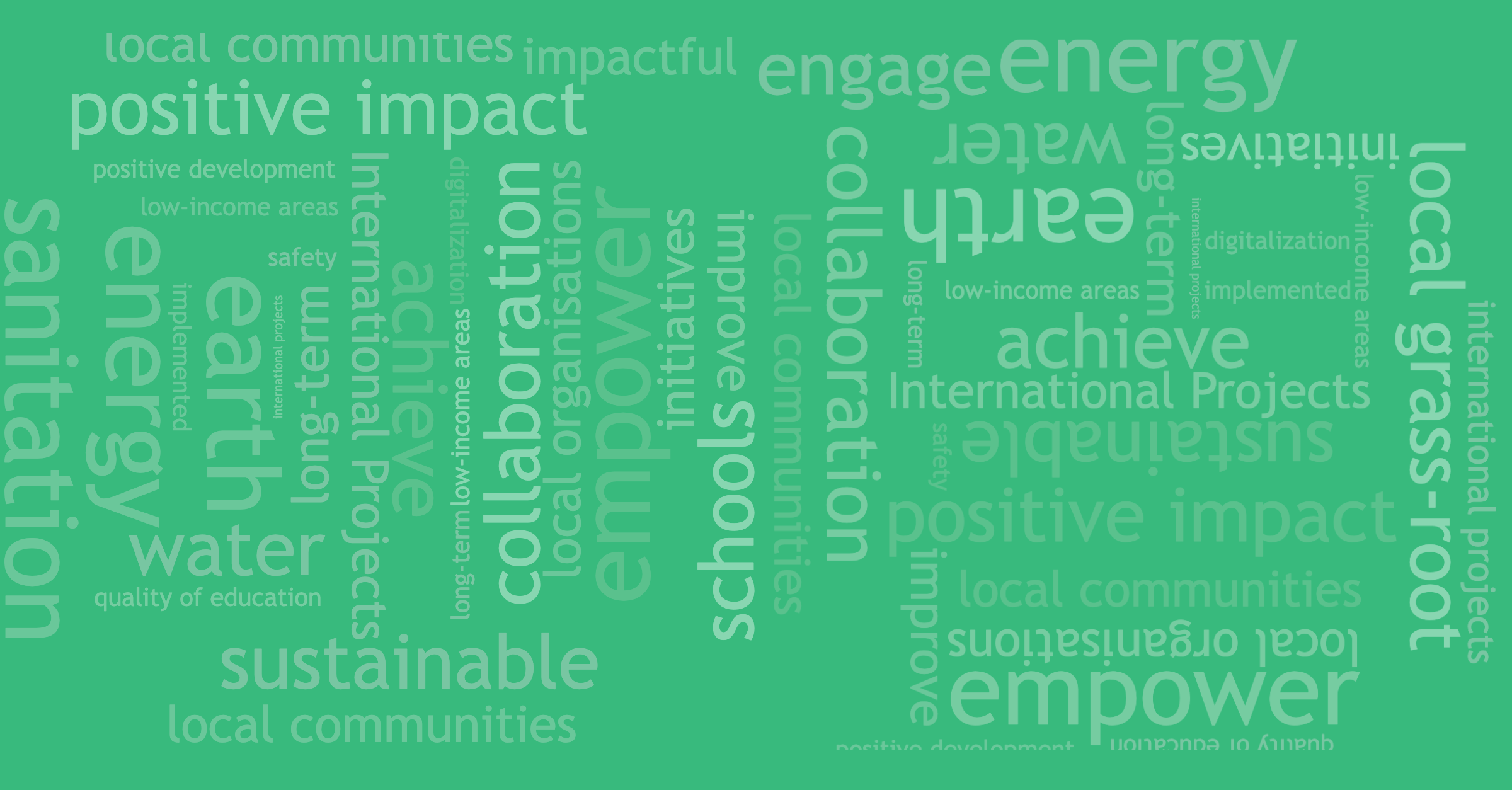Section 3: International Projects
Our International Projects strive to achieve sustainable and long-term positive impact, for local communities in low-income areas and the earth as a whole. Our international projects are always carried out in collaboration with local grass-root organisations and we strive to empower the local communities where projects are implemented.
We focus on energy, water, sanitation and digitalization in low-income countries, and many initiatives are connected to schools and aim to improve the quality of education.
We engage exclusively in projects with potential to contribute to long-term positive development and only in safe and conflict-free areas.
All documents are also available on our Google Drive, where you can find additional background materials. If you’re unsure where to begin or can’t find what you need, don’t hesitate to reach out to our Head of International Projects, Susanne Hurtig and the International Project Secretary.
Section 1: About us
The Activity Year 2025
Guiding Documents
Our Organisation
Policies
Section 2: Operations
Local groups
Economy & Financial reporting
Partners & Sponsors
Volunteer Recruitment
Section 3: International Projects
Organisation
Competence Groups
Projects
Processes
Section 4: Communications
Graphic guidelines
Communications channels
Sociala media
Campaigns
Organisation
To ensure the long-term success of our international projects, EWB-SWE has established a clear and collaborative structure for project planning, support and implementation. Our organisational model brings together technical expertise, local group engagement, and dedicated project management to guide each initiative from idea to lasting impact.
The International Projects Committee oversees all international activities and ensures that each project aligns with EWB-SWE’s values and strategic goals. Within this structure, roles such as the Lead of International Operations, International Project Secretary, and International Project Coordinators play key roles in facilitating progress, offering guidance, and maintaining quality and accountability throughout the project lifecycle.
This collaborative approach allows EWB-SWE to build strong partnerships with grassroots organisations, draw on expert knowledge from Competence Groups, and support volunteer teams working in diverse sectors such as WASH, renewable energy, digitalisation, construction, and sustainable food systems.
Competence groups
What are the Competence Groups?
Competence Groups are EWB-SWE members with expertise in specific areas such as energy and waste, WASH, digitalisation, construction and sustainable food production.
The competence groups support the international project teams
Preferably each group has dedicated members of the group connected to the international project’s coordination (IPC) or a project leader.
What do they work with?
They conduct research for Best Practice
They have experience from previous EWB-SWE projects
Publications and academic work
Projects
EWB-SWE Sustainable projects
Local partner and community
Economic sustainability for local partner
The EWB-SWE project team
Competence groups (please see above)
Project process (please see above)
Considering international travel
Mapping other actors
Economic sustainability for local partner
EWB-SWE aims to empower local communities toward economic independence, so it’s vital to assess the economic impact of activities.
Employment - opportunity for local craftsmen
Use of local materials and equipment
Ensure local ownership of projects by requiring co-investment from government entities, partner organisations, community members, and other stakeholders. Contributions can include labour, materials, food, or tax reductions.
Evaluation and exit strategy
Local partners and community
Local partners are essential for EWB-SWE’s international projects. Community-founded organizations are preferred - solid ground for good impact
The partner should:
have goals in accordance to EWB
be looking for technical support
have forward-looking environmental work
display good ethical values
have a well-ordered organization
If EWB volunteers visit - the partner should also work with HSE
Processes
The Project Process Handbook
For a guide to the differens stages, please look at the Project Process Handbook
UNDER CONSTRUCTION! The info on these pages is being completed. If you see a broken link, or can’t find what you are looking for, please let us know!










